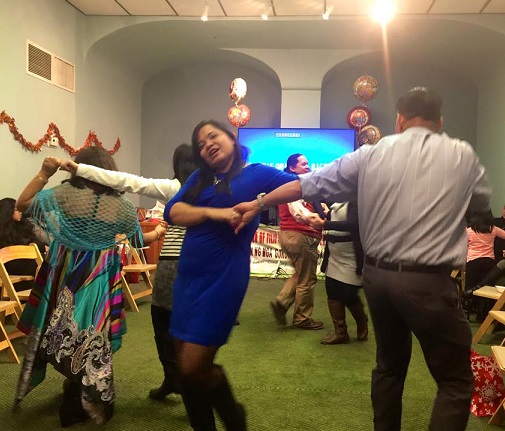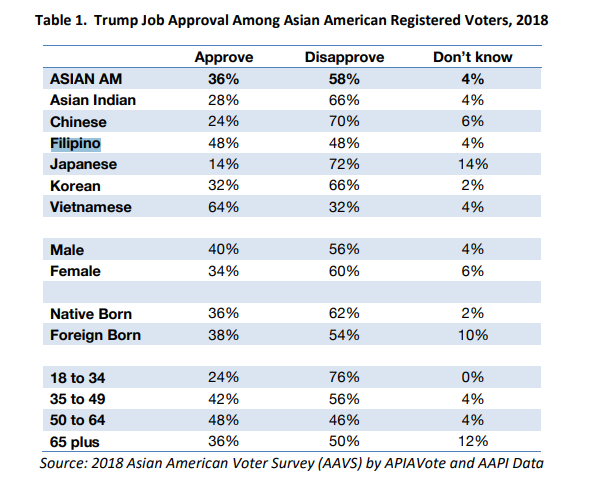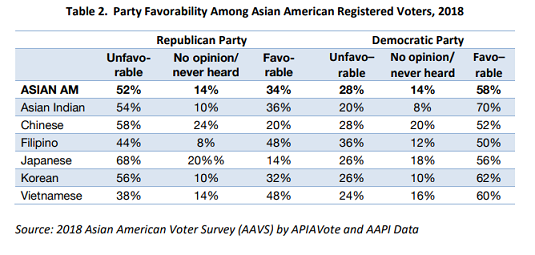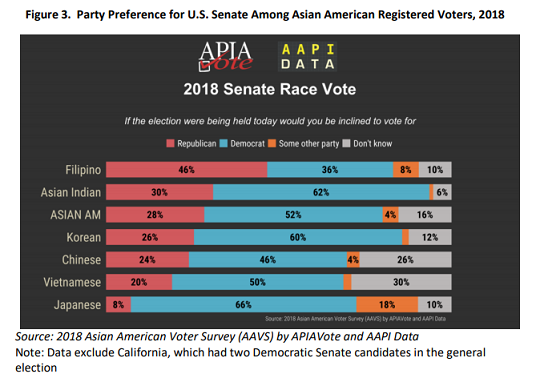AAPI enthusiastic about voting but candidates not reaching out: survey

International tax accountants licensed to practice in the Philippines

For FREE immigration consultation, CLICK HERE. Use Code: THE FILAM
As the Asian American electorate continues to grow, the group will continue to play a significant role in political races at the national, state, and local levels, according to a survey released on October 9.
Of importance is the increase in voter enthusiasm, with 48 percent polled indicating they are “more enthusiastic about voting this year” compared to only 28 percent in 2014.
Of note, the Democratic Party holds a sizable advantage on most issues, with the greatest gaps found on the environment, racial discrimination, health care, and gun control. At the same time, the Republican Party fares stronger on issues like taxes, jobs and the economy, and national security. The Republican Party’s issue advantage among Asian American voters is stronger than in 2014, where it held an advantage only on issues of national security.
“These data show why it’s vital to survey the Asian American community,” said Karthick Ramakrishnan, founder and director of AAPI Data, which conducts and publishes research on Asian Americans and Pacific Islanders. “Not only is the Asian American community the fastest growing racial group in the country, it is also a politically dynamic population whose vote still remains up for grabs.”
With the mid-term elections only a few weeks away, candidates need to understand the diverse but increasingly invested Asian American electorate.
“We have seen great enthusiasm from Asian American voters increase as community organizations and college campuses participate in our regional trainings and organize voter registration and engagement programs,” said Christine Chen, executive director of Asian and Pacific Islander American Vote. “They are connecting the dots between their ability to advocate for their communities’ interests and the power of their vote. At the same time, these findings highlight that political parties and candidates are not investing in reaching out to this growing base of active voters, with more than half indicating that they have not been contacted by either party.”
The survey also found that overall, about 3 in 5 Asian American registered voters (58 percent) disapproved of Donald Trump’s job as president, while only about a third approved (36 percent). This is a significant contrast from our last midterm survey in 2014, where 50 percent of Asian American registered voters approved of Barack Obama’s job as president, while 36 percent disapproved. Asian American low approval of President Trump is in line with the low approval ratings of the American electorate in general during this period.
“From safer working conditions to fostering a work environment free from harassment and discrimination to issues of racial and immigrant justice, what’s clear from this data is that Asian Americans deeply care about issues that the labor movement has long championed,” said Alvina Yeh, executive director of the Asian Pacific American Labor Alliance, AFL-CIO (APALA).
Some of the findings on the Filipino American community:
• Filipino Americans were split on the issue of Donald Trump’s job approval, 48 percent, 48 percent.
• Asian American registered voters gave the Democratic Party a large net favorable rating. FilAms gave the Democratic Party 50 percent approval versus the Republican Party’s 48 percent.
• In the Senate elections, only FilAms — among Asian American voters — said they would vote Republican over Democratic, 46 percent, 36 percent.
• In the House elections, FilAms were split – 40 percent, 40 percent — on which party to support.
Other notes of importance in the survey include:
Party Prospects in 2018 Midterms: Democratic Party candidates enjoy strong advantages among Asian American voters when compared to Republican candidates, both in U.S. Senate races (52 percent -28 percent) and in House races (50 percent -28 percent). Vietnamese American voters prefer Republican candidates in House races, and Filipino voters outside of California have a slight preference for Republican Senate candidates.
Party Favorability: Asian American registered voters hold a net unfavorable view of the Republican Party, with 52 percent viewing the party unfavorably and 34 percent viewing it favorably. At the same time, Asian American registered voters give the Democratic Party a large net favorable rating (58 percent -28 percent).
Pathway to Citizenship: 64 percent of Asian Americans support, and 20 percent oppose, a pathway to citizenship for undocumented immigrants. Support for this policy is consistent across the board, including among Asian American Republicans.
Gun Control: Gun control has strong and consistent support among Asian Americans. By a nearly a 7-to-1 ratio, Asian American registered voters favor stricter gun laws in the United States, with net support strongest among Chinese Americans and the foreign born. And, while Democrats show the strongest support, even Asian American Republicans favor stricter gun laws.
The survey of 1,316 Asian American registered voters was released by the Asian and Pacific Islander American Vote (APIAVote) and AAPI Data, and conducted in partnership with Asian Pacific American Labor Alliance, AFL-CIO (APALA), and Asian Americans Advancing Justice | AAJC. It was sponsored by Civic Leadership USA.
© The FilAm 2018














